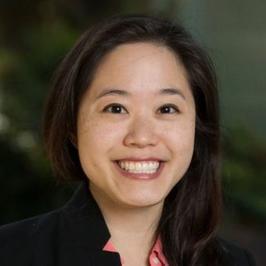Psychology researcher Rachel Wu has received a $700,000 grant from the National Science Foundation (NSF). The grant, which will be administered over three years, will consider how learning and the brain are affected during retirement years.
While much is known about well-being in retirement as it relates to social interactions and financial security, Wu said little is known about the impact of retirement on learning opportunities and cognitive abilities.
Wu said for some, retirement may be akin to the “summer slide” experienced by students on summer break. That refers to when students lose some of the knowledge they gained during the school year because they have fewer learning opportunities in the summer.
Wu said summer slide is a demonstrated critical issue in childhood education that occurs unevenly because of disparities, including in income.
“What if adulthood, especially older adulthood, is just one very long summer slide?” said Wu, who is an expert in cognitive development across the lifespan, particularly in infants and older adults. Her research has shown cognitive improvement with learning interventions in older adults.
“…These findings on interrupted learning in childhood may be useful for drawing links to the decline in learning opportunities and possible loss in skills after retirement in older adulthood,” Wu wrote in her NSF proposal.
The research will consider fixed variables such as age, education level, and prior employment. It will also examine potentially flexible factors such as financial security, social engagement, and motivation. All will be considered against a backdrop of whether one’s retirement was forced or voluntary.
The study will also assess whether the new learning opportunities – factoring the level of challenge and variety – relate to the number of years since retirement.
Finally with the same participants, the study will then consider whether learning and activities predict differences in brain structure, and whether these factors mediate the effect of retirement on learning and other cognitive abilities.
“Our findings may change how researchers and clinicians consider cognitive and brain health in retirees by including new learning, activity challenge, and activity variety as potentially important modifiers,” Wu said. “Our findings also could eventually lead to the development of more effective learning and cognitive interventions that promote successful aging in retirees.”
In addition to Wu, the research team includes UCR researchers Ilana Bennett and Esra Kurum; Jessica Church-Lang of University of Texas, Austin; Margaret Beier of Rice University; Mo Wang of University of Florida; and Martin Lövdén of University of Gothenburg.
